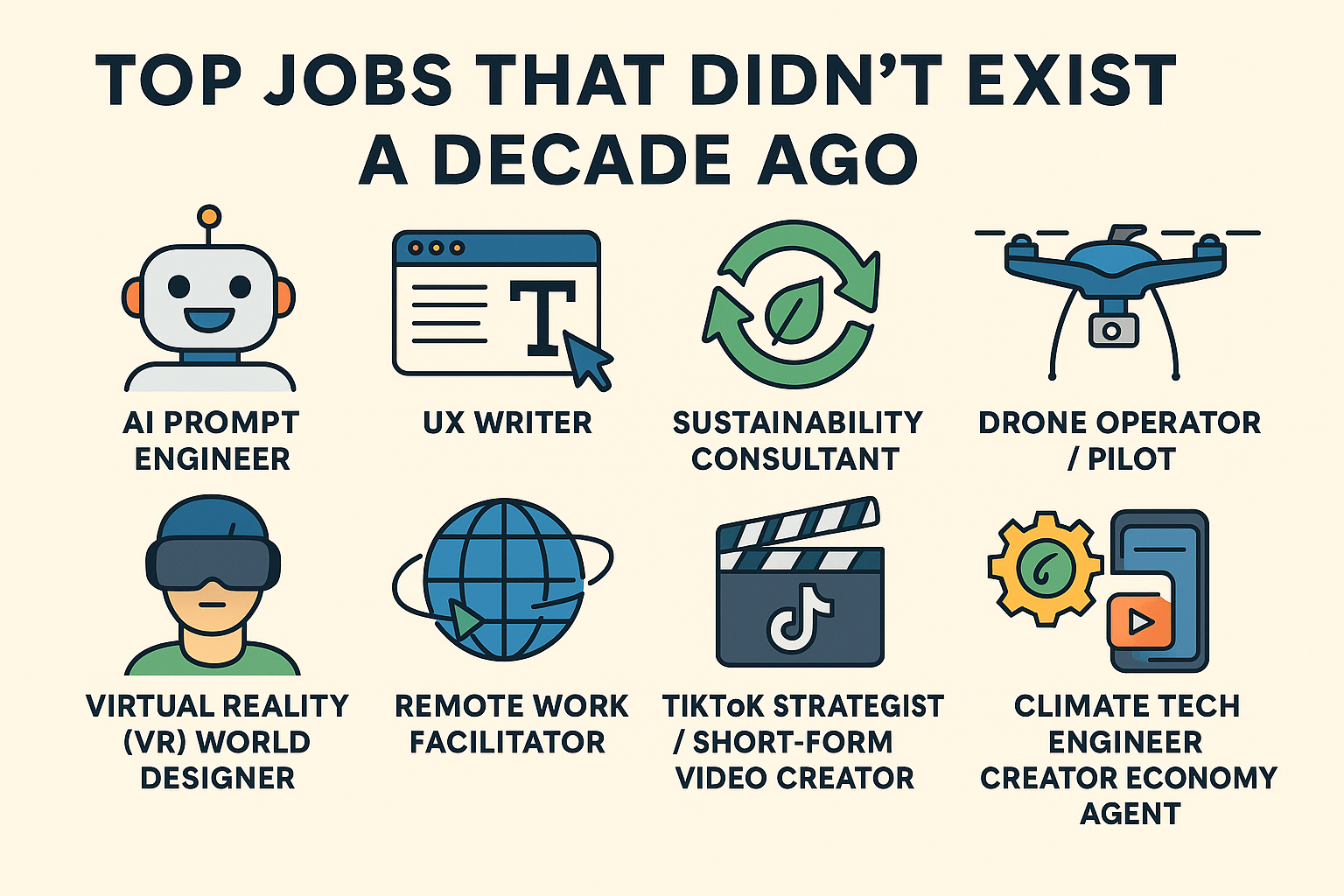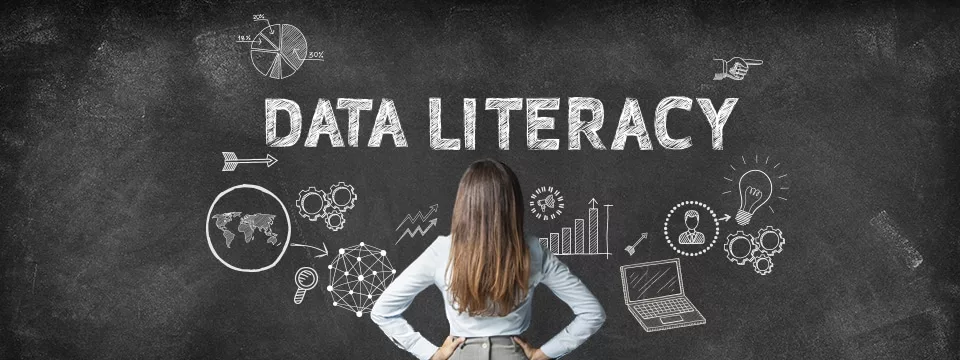Ten years ago, no one was applying for jobs like “drone operator,” “UX writer,” or “AI prompt engineer.” Today, they’re not only real—they’re in high demand. As technology evolves and global priorities shift, the job market reshapes itself in real time, creating careers we couldn’t have imagined a decade ago. This article explores how new roles emerge, what skills are rising with them, and what that means for the future of work. If you're thinking about what to study or how to stay relevant, you're already asking the right questions.
Why the Job Market is Morphing Faster Than Ever
The last decade has brought an acceleration in how we work, what we work on, and why. Technology is a big driver, but it's not the only one. Climate change 🌍, digital lifestyles 💻, remote work 🏠, data privacy 🔒, and even shifting values around purpose and flexibility are redefining the employment landscape.
What's changed isn't just what jobs exist—it’s how quickly they emerge. Traditional education systems can barely keep up. And that’s actually good news: in a world of constant reinvention, adaptability becomes your greatest asset 🚀.

Top Jobs That Didn't Exist a Decade Ago
Let’s look at some standout roles that weren’t part of job boards in 2014 but are now shaping industries:
1. AI Prompt Engineer 🤖
With generative AI tools like ChatGPT or Midjourney becoming central to business and creativity, someone needs to know how to talk to the machines.
Key skills: language fluency, creative thinking, basic understanding of AI models, and problem framing.
2. UX Writer ✍️
More than just writing buttons or help text, UX writers shape how we interact with apps and platforms.
Why it matters: In an app-driven world, user clarity equals business success.
3. Sustainability Consultant 🌱
As ESG becomes a corporate priority, companies need experts to advise on waste reduction, ethical sourcing, and carbon footprints.
Notable shift: This role didn’t exist widely 10 years ago. Now it's critical in fashion, food, and tech.
4. Drone Operator / Pilot 🚁
From filmmaking and agriculture to construction and disaster response—drones are everywhere.
Tip: It’s a mix of technical control, regulation knowledge, and creative vision.
5. Virtual Reality (VR) World Designer 🕶️
With the rise of the metaverse and immersive learning, building digital worlds is no longer just for game developers.
Needed skills: 3D design, storytelling, and spatial experience.
6. Remote Work Facilitator 🌐
Managing remote teams isn’t just about Zoom calls. Specialists now maintain culture, collaboration, and productivity.
Surprising fact: This role barely existed pre-2020.
7. TikTok Strategist / Short-Form Video Creator 🎬
The rise of short-form video created demand for people who can grab attention in under 15 seconds.
Skill set: Video editing, cultural fluency, storytelling.
8. Data Privacy Officer 🔐
With GDPR and CCPA, companies need experts in digital ethics, compliance, and user consent.
Insight: This role bridges legal, business, and tech.
9. Climate Tech Engineer ⚙️
From carbon capture to plant-based innovations, climate tech is booming.
What makes it new: It’s now an entire fast-growing industry.
10. Influencer Manager / Creator Economy Agent 📱
Behind every influencer is a team. Brands hire managers to negotiate, analyze, and coordinate.
Fun twist: It’s talent management—digital style.
What These Jobs Teach Us About the Future
These roles didn’t just “appear” out of nowhere. They emerged because our tools, values, and work styles changed.
✅ Follow the tech, but watch the culture.
New tools spark job growth, but human needs make them last.
✅ Soft skills = power skills.
Critical thinking, adaptability, and communication are harder to automate—and more valuable than ever.
✅ Lifelong learning is the rule.
Today’s “safe” job might look different in five years. Pivoting matters more than any one degree.
Final Thoughts: Future-Proofing Isn't About Fear
It’s easy to feel overwhelmed by change. But remember: most of these new roles didn’t require a brand-new degree—just curiosity, awareness, and a willingness to learn 🎓.
The takeaway?
Don’t try to predict every new job. Instead, build flexible skills and stay open to reinvention. Because the jobs of the future might not exist yet—but they’ll be waiting for people ready to invent them 🚀.






